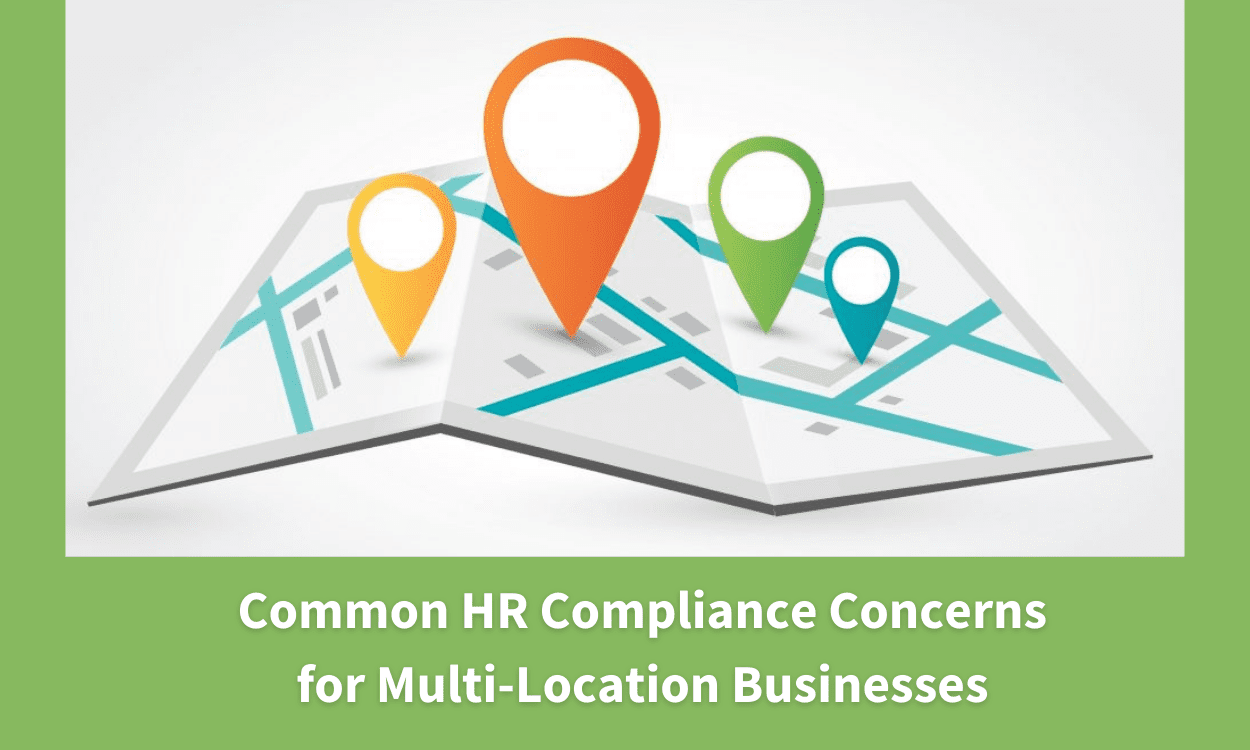Share
The HR compliance landscape is continually evolving. Businesses have no choice but to keep up or become subject to fines and other penalties. Company leaders aren’t always aware of (much less fully understand) their company’s compliance needs.
Whose responsibility is it? What role does HR play? How can HR technology alleviate the compliance burden?
Compliance is a growing challenge for any organization—especially if your company has more than one location. Multi-location businesses face an array of compliance challenges with different requirements and regulations based on location.
How can multi-location businesses ensure all compliance needs are met completely and on time?
Thankfully, HR technology has emerged that makes the tracking and management of compliance much easier for businesses. A cloud-based system provides a centralized hub where all data and countless reports for each site (and altogether combined) can be easily accessed by HR and other stakeholders.
Additionally, regularly scheduled security audits are essential to remaining compliant across the board. A compliance audit is a comprehensive review of an organization’s adherence to regulatory guidelines. Audit reports evaluate the strength and thoroughness of:
- Compliance preparations
- Security policies
- User access controls
- Risk management procedures
What are some common HR compliance issues you should be aware of with multi-location businesses?
Labor Laws
Labor laws are often complex and very specific. Even minor violations can go by unnoticed by stakeholders, but cause major issues down the line. HR professionals must be aware of and actively work to identify and fix any labor-related compliance issues, such as:
- Payroll taxes and IRS audits
- Employee vs. independent contractors
- Wage and overtime rules
- Employee benefits regulations
- Employee handbooks
- Discrimination issues (EEOC, Civil Rights Act of 1964)
- Department of Labor issues (FMLA, Workers Comp)
- Employee safety and health (OSHA)
Data Security
Data security compliance takes into account the standards and regulations that govern how companies keep private data safe and secure. Though most often applied to consumer data, it also covers employee data, financial records, and more, including:
- Health Insurance Portability and Accountability Act (HIPAA)
- Payment Card Industry Data Security Standard (PCI DSS)
- California Consumer Privacy Act (CCPA) and California Privacy Rights Act (CPRA)
- American Institute of CPAs Service Organization Control (SOC 2)
READ MORE: Discover what makes Netchex Safe & Secure: What Does it Mean to be Cyber Ready?
Franchise Agreements
Many multi-location businesses are a part of a franchise network. Franchises start with an all-important Franchise Agreement, which includes requirements, specifics, and other necessary information. Some of the specifics covered in the agreement include:
- Disclosures
- Obligations
- Payments
- Governing law
- Arbitration
Business Continuity Plans
Never underestimate the potential harm that a natural or man-made disaster can cause on your business. As COVID proved, companies must be prepared at all times for the unexpected.
A business continuity plan is a strategic roadmap that outlines how a business will continue operation during an unplanned disruption in service or emergency situation. When properly executed, a business continuity plan builds resiliency by protecting your business processes, employees, data, finances, and reputation.
Business continuity plans are not only important for keeping a business afloat during unusual times, it also part of the compliance requirements for many of the previously mentioned items, including:
- OSHA
- FMLA
- HIPAA
- SOC 2
Industry news & tips sent straight to your inbox!
Enter your email below to subscribe to industry news, product updates, and tips.
For more information on HR topics, read our HR blog and follow Netchex on social media—Facebook, LinkedIn, and Twitter.
Related articles

